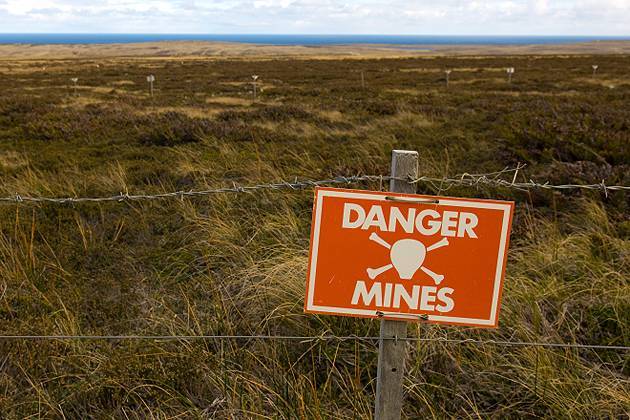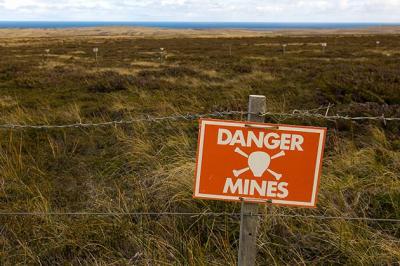Media reports have revealed that "there are more than 800,000 landmines that need to be dismantled in the Turkish border areas and military sites." According to the latest data from the "Turkey Mine-Free Initiative," 193,000 landmines out of a total of 1.3 million have been destroyed, leaving 810,943 mines underground that must be eliminated. Mortiber Wirtan, the director of the "Turkey Mine-Free Initiative," participated in an event at the Bar Association in Diyarbakır, where he presented a briefing on the campaign to ban landmines and the dimensions of the anti-personnel mine issue in Turkey. Wirtan revealed information regarding the number of anti-personnel landmines found throughout the country in Turkey's request to the United Nations in 2013 for an extension.
He pointed out that "the problem of anti-personnel landmines still persists in Turkey," emphasizing that "a database concerning landmines has not yet been established, and the reports sent by Turkey to the United Nations are inconsistent." According to the data, landmines planted in the interior areas of Turkey, as well as on the borders with Azerbaijan, Armenia, Syria, Iraq, and Iran, cause casualties every year.
Turkey joined the "Ottawa" treaty, which bans the use, storage, production, and transfer of anti-personnel mines in 2004, committing to remove landmines by 2014. However, it has failed to meet this commitment and requested an additional 8-year extension in 2013. By 2022, it was also unable to fulfill this commitment and requested an additional 3-year period.
According to the information provided by Turkey to the UN Secretary-General regarding "clearing anti-personnel landmines," 193,000 landmines were destroyed between 2015 and 2022 over an area of 39,000 square meters, with no information about where this study was conducted in Turkey. According to the extension requests from 2013, 2020, and 2022, a total of 1,575 landmines exploded, affecting soldiers and civilians.




